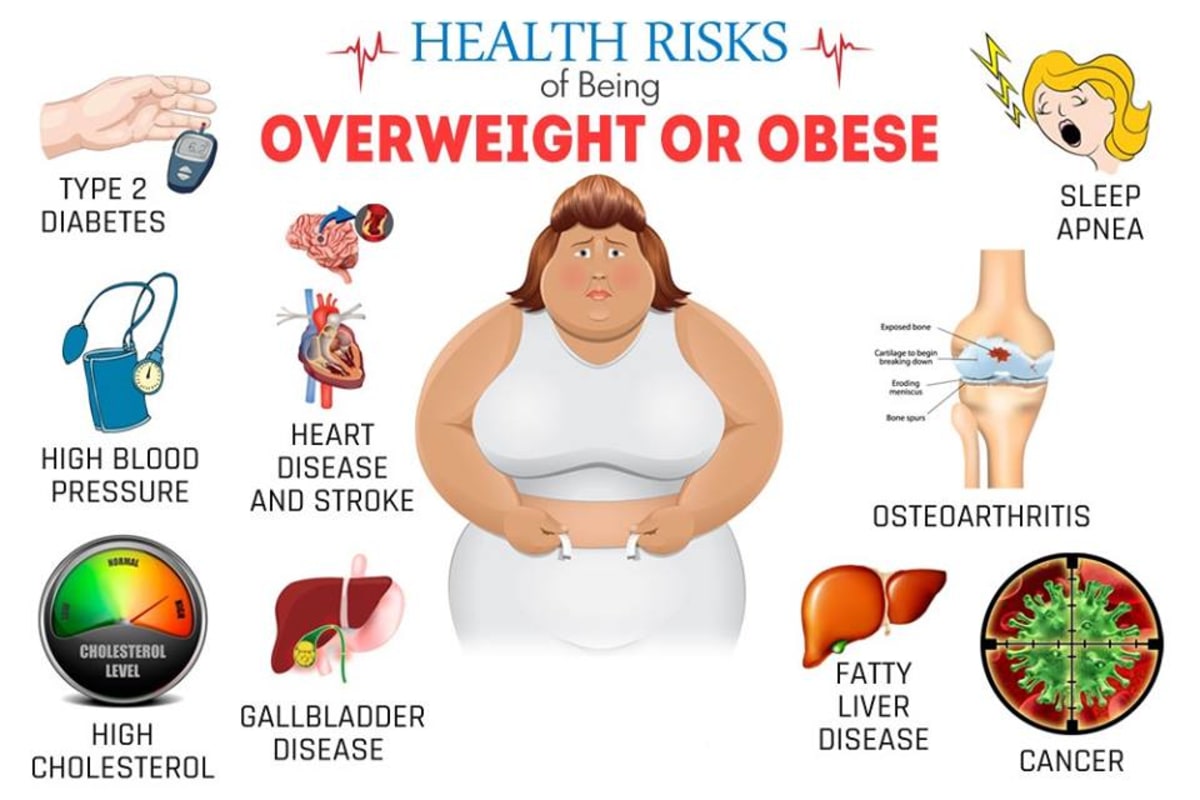
Obesity: A Growing Global ConcernObesity: A Growing Global Concern According to the World Health Organization (WHO), one in eight people worldwide is obese. This condition poses significant health risks, affecting vital organs and systems. Obesity has been linked to cardiovascular disease, type 2 diabetes, osteoarthritis, and certain types of cancer. It can lead to premature death and severe disability, placing a significant burden on individuals, families, and healthcare systems. Data from a study by The Lancet reveals an alarming increase in obesity rates globally. Over 80% of countries have experienced an uptick in obesity among women and men since 1990. The trend is also evident among children, with obesity rates rising in over 70% of countries for both girls and boys. Factors contributing to obesity include unhealthy diets high in processed foods and sugary drinks, as well as a sedentary lifestyle. The WHO emphasizes the importance of achieving an energy balance through limiting unhealthy fat intake, increasing fruit, vegetable, and whole grain consumption, and reducing sugar intake. Regular physical activity of at least 30 minutes of moderate intensity most days of the week can also help manage weight and improve overall health. By implementing these measures, communities and individuals can work towards preventing and addressing the growing problem of obesity.
According to the World Health Organization (WHO), one in eight people is obese. The organization outlined the many health risks associated with obesity and emphasized that obesity can have harmful effects on vital organs and systems in the body.
“It affects the heart, liver, kidneys, joints and reproductive system,” the WHO said.
According to a study by The Lancet, obesity rates worldwide increased significantly from 1990 to 2022. During that period, obesity rates rose in 81 percent of countries for women and 70 percent of countries for men. The upward trend is evident in children, with obesity rates increasing in 70 percent of countries for girls and 69 percent for boys.
Cooks work in the kitchen of the Burle Marx Municipal School in Rio de Janeiro, Brazil, on April 4, 2024. Nearly a third of children in Brazil suffer from obesity, an epidemic that city health officials and community leaders are trying to tackle in innovative ways, from school cafeterias to taking their healthy eating message to the streets. AFP PHOTO
According to the WHO, being overweight has a major impact on health and can lead to serious conditions such as cardiovascular disease, type 2 diabetes, musculoskeletal disorders such as osteoarthritis and certain types of cancer, such as uterine, breast and colon cancer.
It was emphasized that health problems can lead to premature death and significant disability. The risk of health problems starts at mild obesity and increases with weight gain, leading to long-term suffering for individuals and families and high health care costs.
The UN agency said obesity can be prevented by achieving an energy balance between calories consumed and calories expended.
This can be done by limiting total fat intake, switching from saturated fats to unsaturated fats, increasing consumption of fruits, vegetables, legumes, whole grains and nuts, and reducing sugar intake.
Additionally, increasing physical activity to at least 30 minutes of moderate intensity on most days can help manage weight and improve health, according to the WHO.